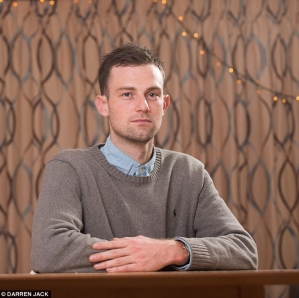A Christian teacher and pastor has blamed "political correctness gone mad" after he was suspended from his job because he "misgendered" a transgender student.
"I have been shocked and saddened by the actions of the school, which, in my opinion, reflect an increasing trend of Christians being marginalized in the public square, and unpopular beliefs silenced," said Joshua Sutcliffe, 27, a teacher at a state secondary school in Oxfordshire.
The controversy began after Sutcliffe, who also pastors at an evangelical church in Oxford, reportedly said "Well done girls" to the teenager, who was born a female but identifies as a male, and a friend when he spotted them studying.
He apologized when corrected by the student, but six weeks later he was suspended from teaching after the pupil's mother lodged a complaint. Following an investigation, he has been summoned to a formal disciplinary hearing this week to face misconduct charges for "misgendering." He also faces claims that he is breaching equality policies by referring to the pupil by name rather than as "he" or "him," reports the MailOnline.
The transgender student's parents also claimed Sutcliffe had unfairly given the pupil a disproportionate number of detentions for poor behavior, but this claim was later dismissed.
Sutcliffe told reporters he was "distraught" by what he referred to as "political correctness gone mad," explaining that he had no official instructions about how to address the student. However, as a Christian, the teacher said avoided using male pronouns such as "he" and "him" when referring to the student.
"While the suggestion that gender is fluid conflicts sharply with my Christian beliefs, I recognize my responsibility as a teacher and Christian to treat each of my pupils with respect," he said. "I have balanced these factors by using the pupil's chosen name, and although I did not intentionally refer to the pupil as a 'girl,' I do not believe it is unreasonable to call someone a girl if they were born a girl."
"I said it was only one incident for which I had apologized, but he insisted the investigation would go ahead," he continued. "I had always tried to respect the pupil and keep a professional attitude as well as my integrity, but it seemed to me that the school was trying to force me to adhere to its liberal, Leftist agenda. I have never been trained to deal with this sort of thing. I felt completely out of my depth and intimidated."

The investigation reportedly concluded that the "misgendering" of the pupil and "avoidance of using gendered pronouns contravenes the school's code of conduct with regard to demonstrating an awareness of sexual and cultural diversity of students and use of insensitive comments towards young people" and "the use of religious comments in maths lessons demonstrates a failure to comply with school policies."
Andrea Williams, chief executive of the Christian Legal Centre which is supporting Mr Sutcliffe, said that the case is just one of many "where teachers are finding themselves silenced or punished if they refuse to fall in line with the current transgender fad."
Sutcliffe has previously come under fire for his biblical view of gender and sexuality; several years ago, a voluntary Bible club he started during lunchtime was shut down after he answered a student's question on marriage by saying the Bible described it as being between a man and a woman.
Statistics from the Gender Identity Development Service (GIDS) reveal that 84 children aged between three and seven were referred to gender identity clinics last year, compared to just 20 in the year of 2012 to 2013.
Results have shown that the number of children under the age of ten being referred to service had also risen by four times in the last five years: a total of 165 children aged ten and under were referred to the clinic last year, compared with 36 in the year of 2012 to 2013.
Last year, 2,016 young people aged between three and 18 attended gender identity clinics, while just 314 did from 2012 to 2013.






